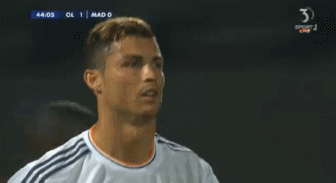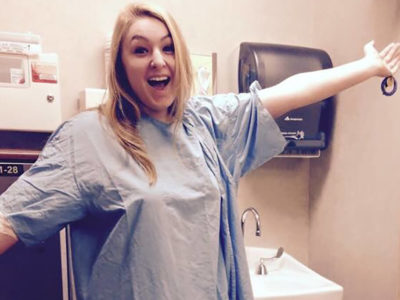I stumbled into the changing room and studied my sickly reflection in the mirror. My hair looked thinner, my skin had taken on a ghastly hue. I didn’t feel my prettiest to say the least, but after just emerging from my third surgery, I set the attractiveness bar low. The most noticeable changes to my appearance came in the form thick gauze bandages wrapped around my swollen neck and a dark stain that discolored the collar of my hospital gown. Anesthesia numbed my mind, but I remembered a group of nurses coaxing me into drinking a Pepsi shortly after I came to. I studied the stain more intently.
“Is this blood or Pepsi?” I wondered, and then let out a thin laugh. “Is This Blood or Pepsi,” wouldn’t that be an effective title for my future memoir?
I can’t honestly say I ever found the answer to that question, but that day I had more pressing concerns. I was an 18-year-old medical mystery. That afternoon, as I recovered from surgery, I felt thankful for the stain. The blemish made me laugh, and I had since learned that doing so kept me sane as I endured the most difficult medical years of my life.
Always the overachiever, I entered my freshman year of college with my books, bedding and an unresolved medical malady. The previous year I discovered I had a ruptured branchial cleft cyst (say that three times fast) in my neck, resembling a hollow, non-cancerous tumor. If you’ve never heard of it, don’t feel too bad; I once tried to look it up in The Harvard Medical School Family Health Guide (inexplicably lying around my house), but there’s no record of cyst within its pages. One hipster point for me!
Physical pain and general discomfort come with the territory of being sick. I soon learned having a tumor in your neck also has a way of making you feel unattractive. When I was 17 and had something the size of a kiwi protruding from just under my jaw, I decided it best to avoid mirrors for a while. My family, however, did their best to help me embrace my unsettling appearance. How? Two words: Christiano Ronaldo.
My favorite soccer player remains as well known for his looks as his skill on the field, and my mother decided to refer to my tumor as “Ronaldo” so that it would remind me of something attractive. For the next 18 months, every doctor and nurse I asked how Ronaldo and I were doing. They would also tell me that they had never nursed any other patients with fancily-named tumors.

In dealing with all of the ups and downs that come with a Ronaldo, I also learned that doctors feel uncomfortable about giving bad news to a young person. In my personal experience, they often feel the need to distract you. I vividly remember one exchange with a surgeon that involved, of all things, baking suggestions. “It’s a very dangerous area within which to operate,” he told me. “There are a lot of veins and arteries and muscles and nerves there. You might not be able to move your right arm for a while. You might not be able to smile for a few months either, if anything goes wrong… So, um, have you ever made eggs in the oven? No, you haven’t? Oh, it’s super easy, you just use more milk than you think you need and put them in at 350 degrees and there you have it. Eggs.”
I still don’t know how much milk I think I need.

When my tumor made its third debut, I was a freshman in college. Accompanied by three close friends, I made my way to the hospital to confirm Ronaldo’s return. These friends sat anxiously in the lobby while I was poked and prodded by nurses before a doctor finally entered to give me the diagnosis. He too favored mental misdirection as a way to soften the blow. “Yes, it’s back and you’ll need another surgery. It looks like it’s growing pretty rapidly too, so you’ll have to get on that soon. You’re in college, right? That’s wonderful. My daughters are in college, too. They’re twins and they go to school in New York. They met Leonardo DiCaprio, once. Man, apparently he’s a total asshole. They couldn’t stand him. Complete jerk.”
As I wandered back into the lobby in a daze, I had a lot to think about. On the one hand, I was sick. Again. On the other, I had just learned that Leonardo DiCaprio was, apparently, an asshole. I couldn’t figure out which piece of information to process first. When my friends met me at the door and asked me what the doctor had said, I sobbed, “It’s back, and now Leonardo DiCaprio is an asshole.” Like I said, your life gets weird.

I could fill a book with all of the bizarre things that happened to me during my Ronaldo era, but this article isn’t really about my experience. It’s about finding ways to come to terms with sickness, and rising above it. Eleanor Roosevelt famously said, “No one can make you feel inferior without your consent.” I believe that her words apply to any kind of illness as well. You don’t need to turn to humor like I did, but you can find ways to enjoy your new life without letting the stress and strangeness of it consume you. You can make it through, laughing all the way.



















